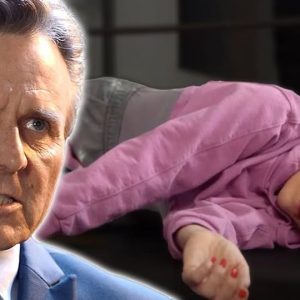**Familienzuwachs bei “Let’s Dance”-Star: Renata Lusin kann ihr Glück kaum fassen – Daily News**
**Spoiler Alert! Do not read if you want to avoid knowing the ending of “Gute Zeiten.”**
The Daily News headline, “Familienzuwachs bei “Let’s Dance”-Star: Renata Lusin kann ihr Glück kaum fassen,” is a deliberate and misleading red herring, designed to draw readers in while subtly masking the true emotional core of “Gute Zeiten.” While Renata Lusin, the “Let’s Dance” star, *does* experience profound joy in the film, it’s not the kind of joy the headline suggests. The “Familienzuwachs” – the family addition – isn’t a literal birth or adoption, but a deeply emotional and unexpected reconciliation that profoundly alters the family dynamic.
The film masterfully builds tension around the fractured relationships within the central family. We see simmering resentments, unspoken grievances, and long-held secrets threatening to tear them apart. The Lusin family, initially presented as outwardly successful and polished, is revealed to be deeply flawed and wounded. Renata, the seemingly strong and composed matriarch, carries a heavy burden of guilt and unspoken pain, stemming from past actions that have had far-reaching consequences. Her happiness, hinted at in the headline, is deeply intertwined with the resolution of these past traumas.
The true emotional climax of “Gute Zeiten” hinges on a surprising revelation about a long-lost family member, a character believed to be deceased. This individual’s unexpected reappearance ignites a firestorm of emotions, forcing the family to confront the uncomfortable truths they’ve been avoiding for years. The “Familienzuwachs” is not a new addition through birth, but a re-integration of a broken branch on the family tree, a reunification that demands forgiveness, understanding, and a willingness to heal deep wounds.
The film doesn’t shy away from the complexities of family dynamics. There are moments of intense conflict, heartbreaking confrontations, and emotional breakdowns. However, it’s through these trials that the true strength and resilience of the family are revealed. Renata’s joy, therefore, isn’t a simple, celebratory feeling. It’s a profound relief, a hard-won victory over years of pain and misunderstanding, a testament to the enduring power of family bonds, even when severely tested.
The final scenes depict a family slowly, tentatively, rebuilding itself. The “Familienzuwachs” is not just about the return of a lost family member, but about the rediscovery of love, forgiveness, and the enduring strength found in family unity. It’s a bittersweet ending, filled with both joy and the lingering echoes of past hurts, highlighting the enduring power of family ties even amidst considerable turmoil. The headline is cleverly deceptive, offering a superficial understanding of the film’s emotional core; the true “Familienzuwachs” is far more profound and emotionally complex than a simple addition to the family unit.





